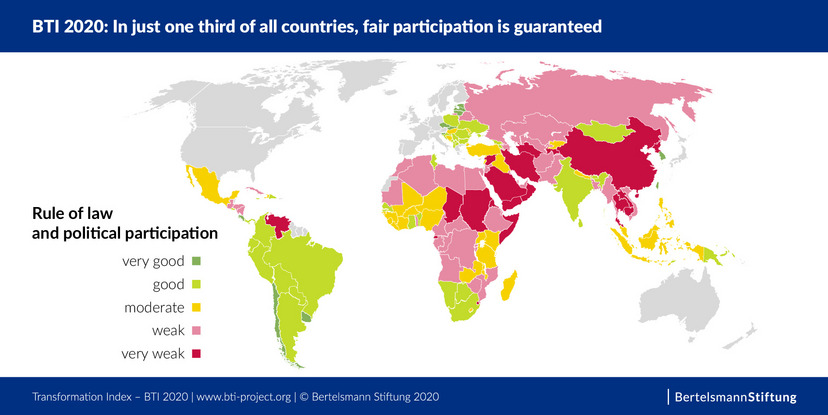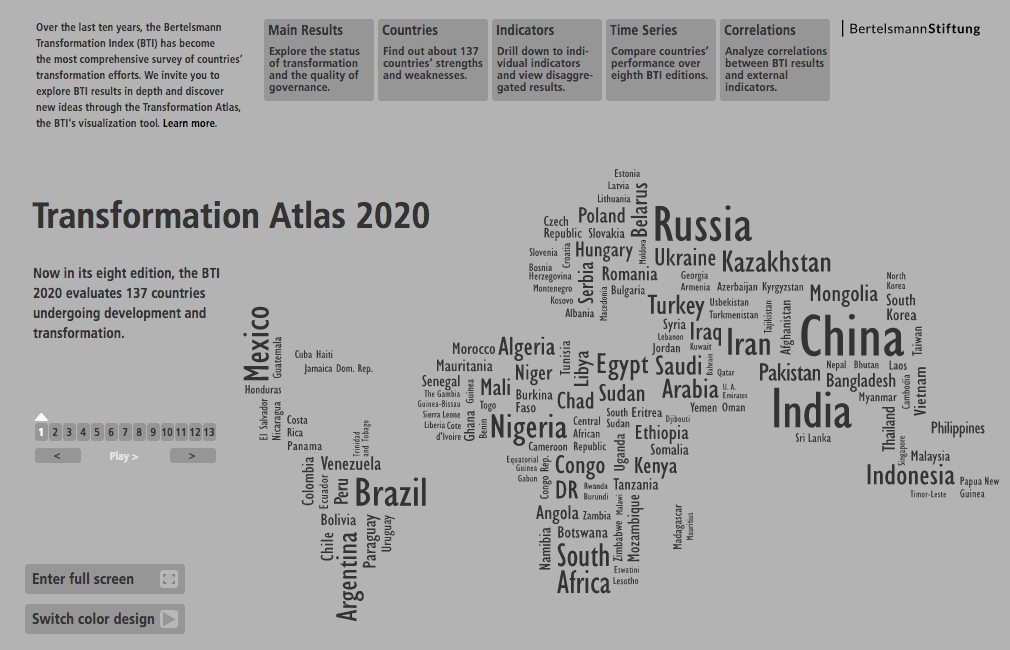The number of people who are governed poorly and less democratically is increasing worldwide. For the sixth time in a row, the ratings of our international Transformation Index (BTI) for the quality of democracy, market economy and governance have dropped, now to their lowest level since the BTI survey began.
Since 2004, the index has assessed political and economic developments in developing and transition countries every two years. Of the 137 countries currently examined, the BTI classifies 74 as democracies and 63 as autocracies.







